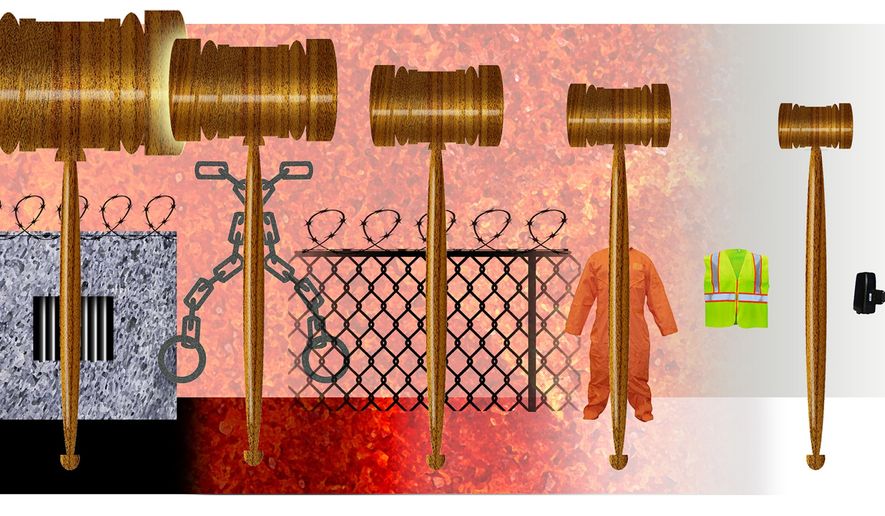OPINION:
Republicans are generally thought of as being tough on crime, at times to a fault. Democrats, in contrast, are often portrayed as willing to let people avoid responsibility for their actions through so-called “soft-on-crime policies.” Neither approach maximizes public safety. The question is whether there is an achievable middle ground in the aftermath of the eye-opening primary elections in California.
Recently, the people of San Francisco — no bastion of conservative thought — recalled their progressive district attorney, Chesa Boudin.
Like so many other prosecutors elected with the help of left-wing billionaire George Soros, Mr. Boudin took office focusing on social justice, economic equality, racial equity and other progressive priorities. But, in doing so, he failed to make public safety the number one priority for his office. Americans of all political stripes want to feel safe. With crime rising, voters in San Francisco rejected Mr. Boudin’s vision of justice.
Some are interpreting the Boudin recall as a sign that criminal justice reform is dead, and that voters are ready to ‘hammer the litterbugs’ once again. But that is not what the data show. To be sure, San Franciscans were weary of the revolving door in and out of jail that Mr. Boudin seemingly constructed. The argument goes that if the most liberal city in America is rejecting criminal justice reform, then it must be stone-cold dead in more mainstream communities.
But what do voters really want? Recent survey research by right-leaning Echelon Insights asked that question and the answer won’t make extremists in either party happy. Voter sentiment can be boiled down to three words: Accountability, proportionality and redemption. And the voters have it right.
Americans want people to be held accountable in some way for their actions, but they also recognize that not all crimes require a long prison sentence to have a deterrent effect. The system is more punitive than it needs to be. When pressed, most Americans want accountability to be proportional to the offense.
At the same time, voters understand that a lapse in judgment can have lifetime consequences for jobs, housing and education. Those surveyed see the need for a pathway to rehabilitation and redemption for people who make mistakes. They want people to learn from their errors, pay their debts to society, and then become good neighbors. Americans are smart. They love a good comeback story, and they also know that rehabilitation makes everyone safer.
At the end of the day, Mr. Boudin prioritized his social agenda over public safety and paid for that choice on Election Day. So where does that leave the rest of America?
The time has come to implement a system of proportional justice. Authorities must use the full force of the legal system when necessary. Breaking the law must have consequences. And often, this means prison. The real question is whether the approach marked by long sentences, little rehabilitation and no pathway to redemption is the right one.
What we know from research and practice in a number of states is that being too tough-on-crime can actually make communities less safe. Prisons are expensive. By dialing back on long periods of incarceration for nonviolent offenses, we can use those savings to fund programs that actually cut crime. To be sure, people must be held accountable. But by making the system less harsh, we can fund more police, better training, job training, mental health care and addiction treatment. These are the things that actually reduce crime in our cities by tackling recidivism.
America is the land of second chances, and the best way to measure the success of redemption programs is by focusing on recidivism to slow the door in and out of prison. Ninety-five percent of people sent to jail will eventually return to their communities. Giving offenders in prison the tools they need to be productive members on the outside ensures that they are less likely to turn back to their life of crime upon release. This, in turn, will reduce crime and the prison population.
There are, and always will be, differences in the way the two parties address criminal justice. But let’s not throw the baby out with the bathwater just yet. There is plenty that Republicans and Democrats agree on, and this is a chance to improve our criminal justice system, make our neighborhoods safer, and still hold people accountable for their actions.
• David Safavian is the general counsel for the American Conservative Union. Courtland Culver is an analyst for the American Conservative Union Foundation.




Please read our comment policy before commenting.